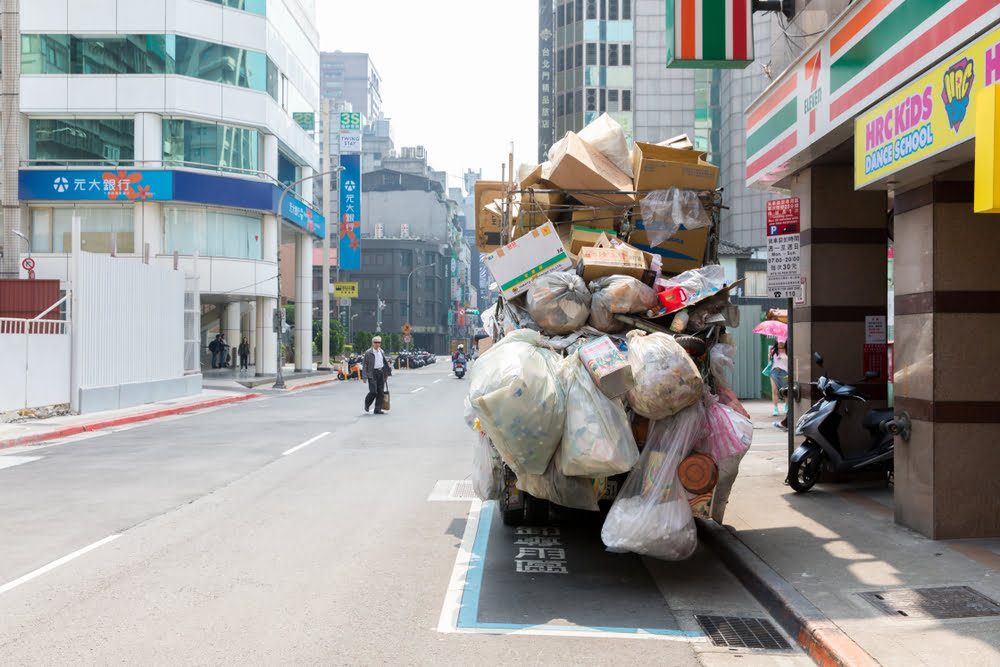If you think a lot of talk about blockchains is garbage, it’s only fitting to let you know that some of it is. Yet another use for blockchain technology has been revealed, and that’s to help us clean up our act. Literally. The superstar technology that’s putting food on the tables of the poorest households is also ensuring efficient waste disposal. Or at least, it soon could be.
Every year, humans produce more than 2 billion tons of waste, and most of it ends up sitting around in landfills, or infiltrating the earth and polluting the oceans. Waste disposal is a serious problem, and it’s also an underexploited opportunity.
While most countries attempt to dispose of their waste by covering giant holes in the ground or burning off non-toxic materials, we’re damaging the environment and leaving money on the table at the same time. So, how can blockchains be put to good use?
Monitoring the Garbage Lifecycle
The blockchain’s ability to track and trace makes it the perfect solution to monitor the garbage lifecycle. And just as with other sweeping inefficiencies across the supply chain, violations when it comes to waste disposal are rife and intermediaries multiple.
Blockchain technology could allow goods to be recorded upon production and assigned a unique identity. They could then be tracked from the start of their lives until the end, when they are sold, traded, and circulated in the market.
Even cooler than that? Their entire history could be stored. So if you had any doubts about a previous owner or wondered about the authenticity of an item, you’d just have to look at its key.
When the product was disposed of, a transaction could be created to record the end of its life, as it were. And when an item was disposed of in a place where it shouldn’t have been, such as in the street or on a beach, its history could be traced.
Of course, assigning a code to every product isn’t a real possibility yet, since it could easily be destroyed or damaged. But there could be awesome potential for tracking plastics and industrial goods and holding big businesses accountable.
Classification and Sorting
Blockchain technology could also be used to incentivize humans to correctly dispose of their garbage. In countries like Germany and Austria, recycling is a natural way of life, but in others, like Chile and Turkey, unregulated dumping is common. There, all types of garbage are mixed together, making proper disposal near impossible.
By being rewarded with cryptocurrency for disposing of items in the right places, people could accumulate points for their benefit. These could be used to withdraw money, exchanged for energy credits, or utilized for a purpose of one’s choosing. So if the incentive of saving the planet isn’t enough, one could use crypto for personal gain.
Importing and Exporting Garbage
Taken to a whole new level, garbage could become a tradable commodity. Once countries have become efficient at garbage disposal and recycling, they could import waste from other countries, earning money for disposing of it.
If you’re thinking that this sounds like a good opportunity for developed countries to dump toxic waste on emerging economies, remember that blockchain tech could add a layer of accountability. That would ensure that certain rules were respected and that importation and exportation were implemented in the right way. The result: making the planet cleaner and monetizing vast wastelands of untapped economic potential at the same time.

